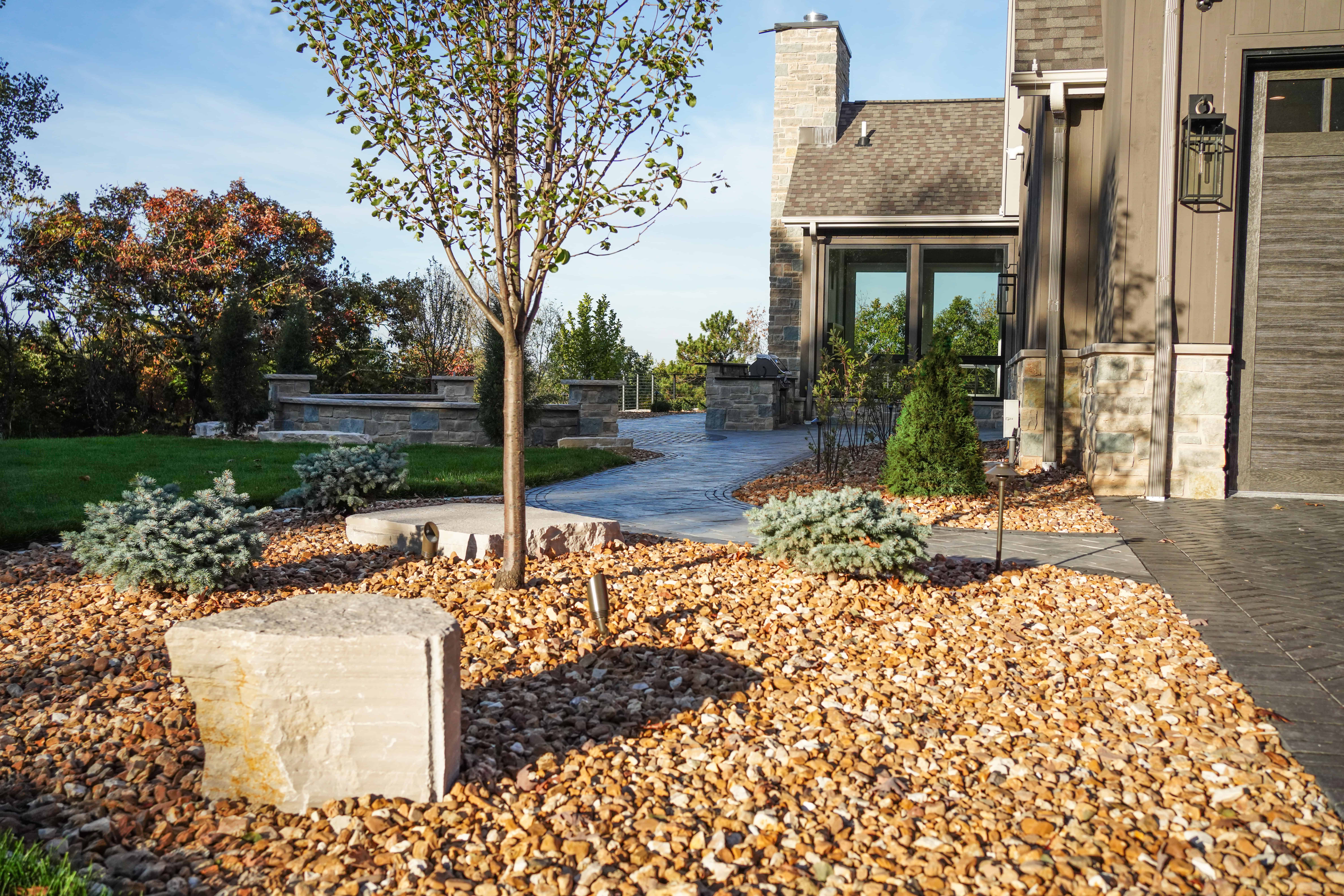
Resources
Frequently Asked Questions
If the soil is properly amended and the plant material watered accordingly, most varieties will perform well in clay soils.
– Shrubs should be watered weekly until established, then as weather dictates.
– Annuals should be watered two or three times a day and maybe even more when the weather is very warm.
– Perennials should be watered weekly until established and then as weather dictates.
– Trees should be watered weekly until established and then as weather dictates.
– Evergreens should be watered weekly until established, then as weather dictates. Also water well right before a hard frost.
– Shrubs should be fertilized annually with a slow release granular fertilizer.
– Annuals should be fertilized every watering with a water soluble fertilizer.
– Perennials should be fertilized annually with a slow release granular fertilizer.
– Trees should be fertilized annually with a slow release granular fertilizer.
– Evergreens should be fertilized annually with a slow release granular fertilizer, usually one on the acidic side.
The best time to transplant shrubs, perennials, trees, and evergreens would be early spring or fall. If transplanting during hot weather, be sure to water accordingly.
Yes. Root stimulator is actually good to use when planting perennials, shrubs, trees, and house plants. Root stimulator helps to stimulate early root formation and stronger root development. Root stimulator also helps reduce transplant shock and promotes greener, more vigorous plants. Please make sure to read and follow label directions.
Usually April through mid-November for nursery stock; May through the summer for annuals; and May through October for perennials. Weather may shorten or lengthen these time periods.
Stuart’s Garden Centers guarantee all shrubs and trees from the date of purchase through November 15 of that same year. Although, if we do the planting for you, your trees and shrubs will have a two-year warranty. We do not guarantee perennials, annuals, or roses.
You can use an acid based fertilizer such as aluminum sulphate.
Cutting mums and asters back in the fall reduces their hardiness. If they are cut back after the temperatures warm in the spring, their survival rate is higher.
Usually we get a hard freeze mid- to late-November. It’s safe to plant until that hard freeze.
Here are just a few: Spreading Junipers, Hostas, Ornamental Grasses, some Viburnums, Yews, and Spireas.
Potentillas, Spireas, and Weigelas have longer bloom times.
We suggest visiting this website for a listing of plant material that would be deer proof.
Initially, new planted material will need weekly watering. Once established, most perennials and nursery stock will be fine. Annual plantings will generally always need to be watered during the week.
Here are just a few; Impatients, Begonias, Torenia, Astilbes, Forget-me-nots, Fuchsia, Hostas, Coral Bells, and Ferns.
